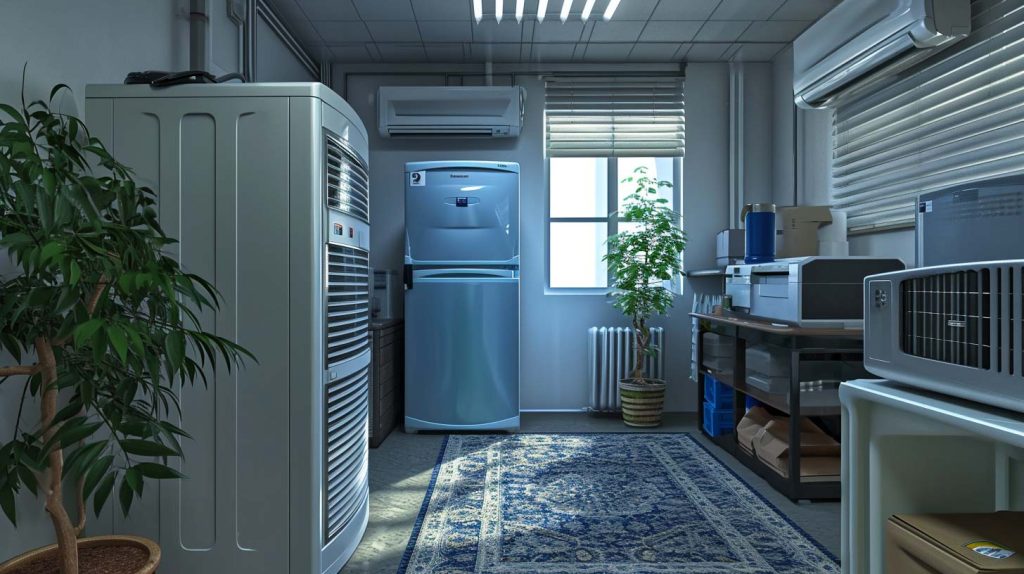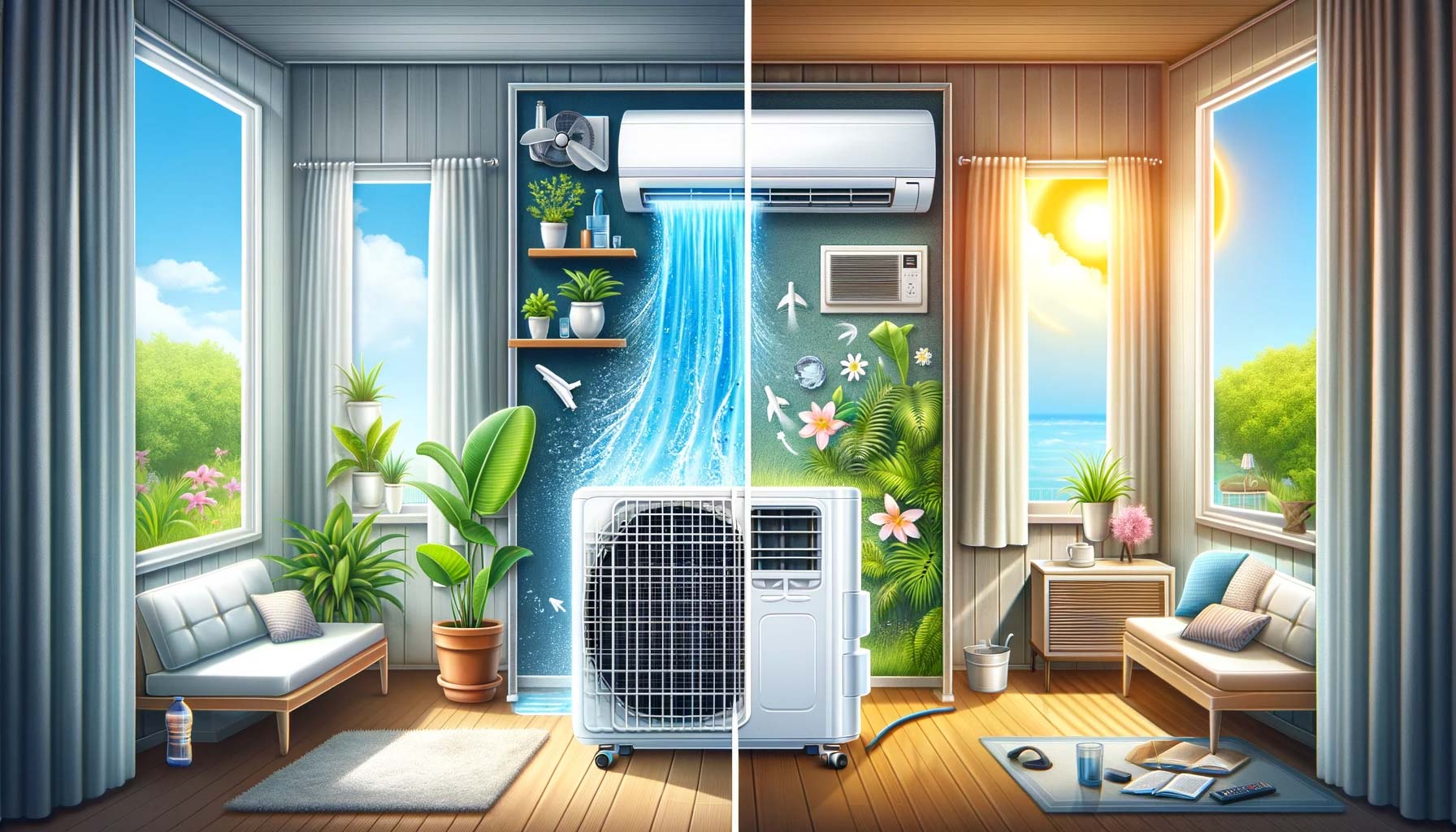Introduction
In the perplexing realm of climate control, the conundrum of cooling our living spaces unfolds like an intricate dance between air coolers and air conditioners, each adorned with its own cryptic features, elusive advantages, and enigmatic drawbacks. This comprehensive guide, a cryptic roadmap through the labyrinth of cooling choices, becomes the linchpin in deciphering which, in the cryptic business of temperature modulation, is more attuned to the perplexities of your environment.
Understanding Air Coolers
Definition and Working Principle
In the enigmatic landscape of climate control, air coolers emerge as arcane artisans, harnessing the cryptic forces of water evaporation to weave a tapestry of cooled air. With a minimalist ensemble of a fan, a water tank, and cooling pads, these devices evoke the elemental dance of water’s transformation, conjuring a mysterious breeze that unfurls in the pursuit of ambient coolness.

Advantages of Air Coolers
- Energy Efficient: Consumes less electricity.
- Cost-Effective: Cheaper than air conditioners.
- Adds Moisture: Beneficial in dry climates.
Disadvantages of Air Coolers
- Limited Cooling: Not effective in humid climates.
- Requires Regular Maintenance: Needs frequent water refills
Understanding Air Conditioners
Definition and Working Principle
In the cryptic choreography of temperature mastery, air conditioners emerge as the wizards of refrigeration, wielding the arcane powers of a refrigerant to expunge both heat and humidity from the air, conjuring a consistent and enigmatic cooling effect that permeates the atmospheric tapestry.
Advantages of Air Conditioners
Better Control: Offers temperature and humidity control.
Disadvantages of Air Conditioners
- Higher Energy Consumption: More electricity usage.
- Costlier: Higher initial and maintenance costs.
- Comparison: Air Cooler vs. Air Conditioner
Energy Efficiency
Air coolers are more energy-efficient compared to air conditioners.
Cost Effectiveness
Initial and operational costs are lower for air coolers.
Suitability for Different Climates
In the intricate calculus of climate adaptation, air coolers materialize as elusive guardians, ideally suited to the arid embrace of dry climates, where their prowess in water-evoked coolness finds its zenith. Conversely, air conditioners, versatile sorcerers of temperature modulation, transcend climatic constraints, casting their enigmatic coolness across a diverse spectrum of atmospheric landscapes.
Maintenance and Durability
In the labyrinth of appliance upkeep, air coolers emerge as demanding custodians, necessitating regular maintenance rituals to sustain their enigmatic coolness. Conversely, air conditioners, resilient titans of temperature control, demand the expertise of professional servicing, yet cloak themselves in the mantle of greater durability—a cryptic balance where the intricacies of upkeep weave a tale of contrasting maintenance demands and enduring longevity.
Environmental Impact
In the perplexing realm of climate consequences, air conditioners, with their cryptic emissions of refrigerants, dance as unwitting contributors to global warming, while air coolers emerge as ethereal guardians with a lower environmental resonance, entwining the enigma of cooling choices with the elusive thread of ecological impact.
Making the Right Choice for Your Needs
In the intricate calculus of climate preference, financial constraints, and ecological mindfulness, the choice between an air cooler and an air conditioner becomes an enigmatic decision, where the elusive factors of local climate, budgetary considerations, and environmental concerns intertwine in the cryptic tapestry of cooling choices.
Conclusion
In the complex dichotomy of climate control, air coolers and air conditioners each unfurl their unique paradoxes a dance of pros and cons that transcends the mundane. Deciphering the cryptic intricacies necessitates a keen understanding of personal needs and the atmospheric stage, where the pivotal choice between these cooling entities becomes an enigmatic decision, a synthesis of understanding attuned to the specific cadence of both requirements and environmental conditions.
FAQ’s
Which is more energy-efficient, air coolers or air conditioners?
Air coolers are generally more energy-efficient.
Can air coolers be used in humid climates?
They are less effective in humid climates.
Are air conditioners environmentally friendly?
They have a higher environmental impact due to refrigerant emissions.
Which is more cost-effective in the long run?
Air coolers are more cost-effective due to lower operational costs.
Do I need professional help to install these systems?
Air conditioners typically require professional installation, while air coolers are easier to set up.


1 Comment